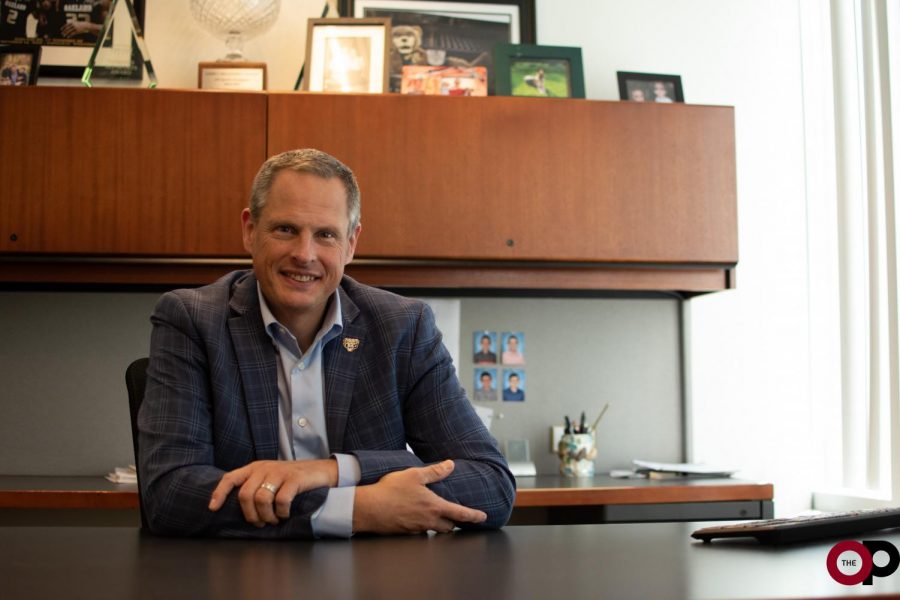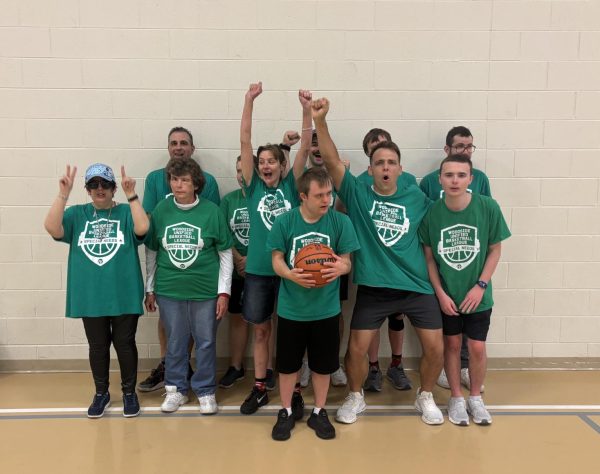Black Lives Matter and OU sports
In the wake of change, Oakland University has been working toward change in response to the Black Lives Matter movement.
On Oct. 14, George Floyd should have celebrated his 47th birthday. After being under an officer’s knee for nearly nine minutes, Floyd is unable to celebrate.
These protests sparked change throughout the country as people took to the streets to protest the killing of unarmed Black people and police brutality. Following the protests, a surge of support for the Black Lives Matter movement occurred along with change across the nation.
In June, 67% of adults said they somewhat supported the Black Lives Matter movement. According to the Pew Research Center, the majority of U.S. adults support the Black Lives Matter movement.
Following the protests, change swept the nation. Major cities like Minneapolis and New York City vowed to defund their police departments and fund other important departments.
Major companies such as PepsiCo., which owns the heavily criticized Aunt Jemima pancake mix, has said they will rebrand “to make progress towards racial equality.” Johnson & Johnson also announced it would stop selling products that help people lighten their skin.
After his murder protests erupted across the nation, the number of protests peaked in June with 550 protests occurring around the nation including in Oakland County, impacting students at OU.
In response to the movement, OU’s athletic department has been implementing changes to make progress towards racial equality.
Athletic Director Steve Waterfield has been a big part of this change in his department.
“One of the things we do within an athletic department and university is supporting and lending a voice and encouraging people to pursue causes that resonate with them,” Waterfield said.
Waterfield has made it mandatory for all of the student athletes at OU to engage in monthly seminars with Dr. Tommy Shavers to discuss diversity, equity and inclusion (DEI). Shavers is co-founder and CEO of NESTRE Health & Performance, a neurostrength company focused on increasing brain health, mental wellness and human performance.
Waterfield describes the DEI seminars as a “series of conversations within our student athletes and staff about diversity, equity and inclusion, racial equality, social justice.” Waterfield has let Shavers take over these meetings and lead these discussions in a way so student athletes can engage in meaningful conversations.
“If each of us can figure out some way that we can make progress or create change, that one turns to two and we start to work together,” Waterfield said.
In order to truly maximize full potential, Waterfield encourages student athletes to use their platform to bring awareness and promote racial justice in an “educated, meaningful way that is effective.”
Sam Smith, a sophomore at OU who is also a member of the OU swim team, said OU is doing a good job of bringing about change within the community.
“The fact that they [OU] are willing and open to conversation is a great start,” Smith said.
Smith also said OU should expand off the idea of conversation and expand it to the whole school. Smith advocated for an idea to the school where all students are invited to an open discussion to express their ideas and feelings.
“Oakland University is all about pride,” Smith said. “What better way to show pride than to give back to the community and figure out ways to support the Black Lives Matter movement.”
Since June, support for the Black Lives Matter movement has decreased. According to the Pew Research, the support has dropped 12%.
“I am proud we are engaged in this dialogue with Tommy,” Waterfield said. “But it can’t be a one year deal.”
Waterfield hopes the DEI program will stick around for years and become a part of the culture at OU.
“One of the biggest things is understanding,” Smith said. “We need to understand both sides before we can appreciate our own side.”




